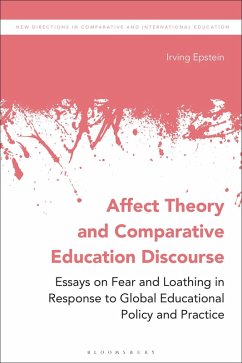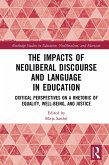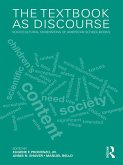What does educational policy-making and institutional practice entail in an era of globalization? Global interactions challenge conventional assumptions governing the certainty of geographical boundedness; simplistic notions of citizenship and identity; fixed notions of time, space and movement, and clear distinctions between economic modes of production and consumption.
Irving Epstein argues that conventional educational institutions and the policies that support them tend to ignore such anxiety by affirming a belief in educational modernism to the exclusion of other possibilities. What is missing in most of these analyses is an appreciation for the role of affect in determining how our encounters with these practices become significant and how our efforts to find meaning in those policies and practices lead to their acceptance or rejection.
This book is the first application of affect theory to comparative education themes and shows how it can help to form a more robust discussion of the policy-making process and the popular reactions to it. After discussing the key concepts associated with affect theory, he presents a total of six case studies. Three of the cases depict relationships between educational, cultural, and social organizations whose purposes conflict with one another but whose presence is indicative of a loss of faith in the efficacy of public schooling. Three of the cases are illustrative of an even greater systematic rejection of educational institutional aim and purpose.
Irving Epstein argues that conventional educational institutions and the policies that support them tend to ignore such anxiety by affirming a belief in educational modernism to the exclusion of other possibilities. What is missing in most of these analyses is an appreciation for the role of affect in determining how our encounters with these practices become significant and how our efforts to find meaning in those policies and practices lead to their acceptance or rejection.
This book is the first application of affect theory to comparative education themes and shows how it can help to form a more robust discussion of the policy-making process and the popular reactions to it. After discussing the key concepts associated with affect theory, he presents a total of six case studies. Three of the cases depict relationships between educational, cultural, and social organizations whose purposes conflict with one another but whose presence is indicative of a loss of faith in the efficacy of public schooling. Three of the cases are illustrative of an even greater systematic rejection of educational institutional aim and purpose.









